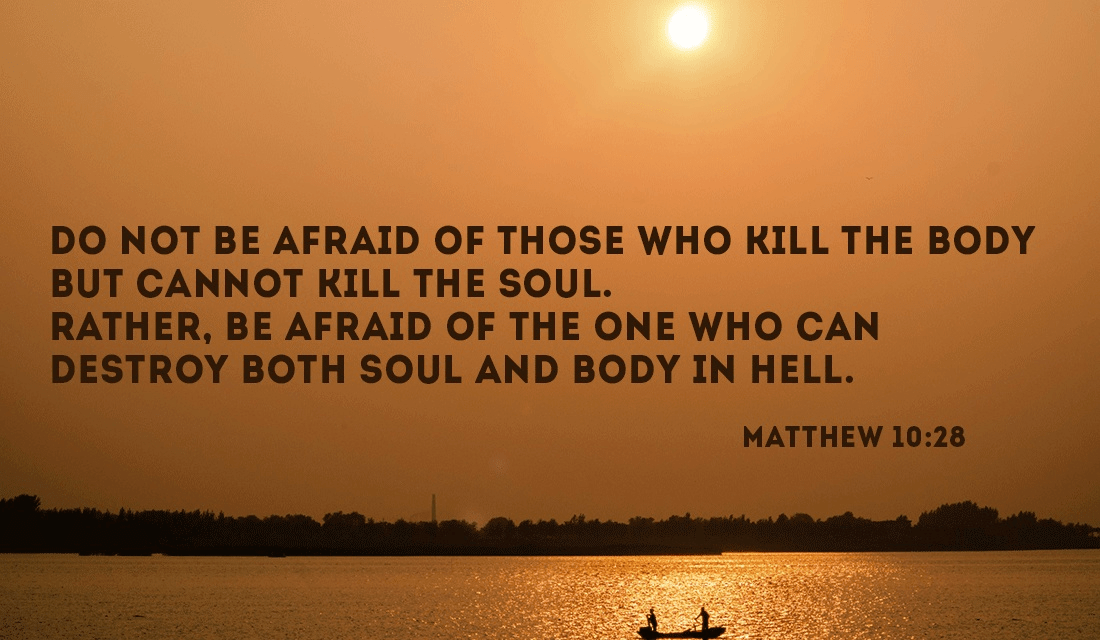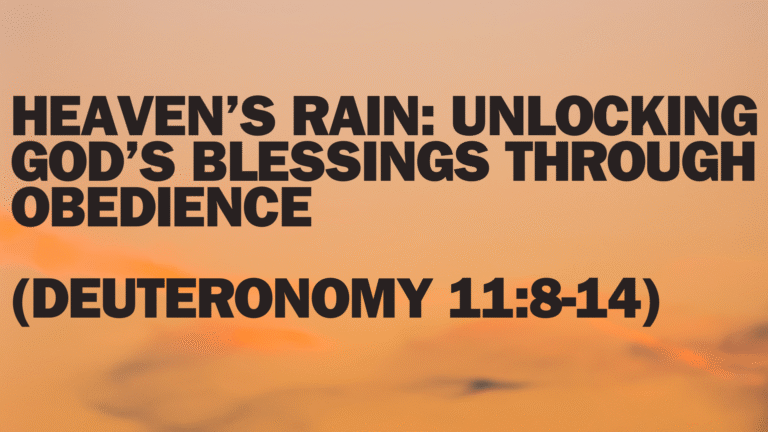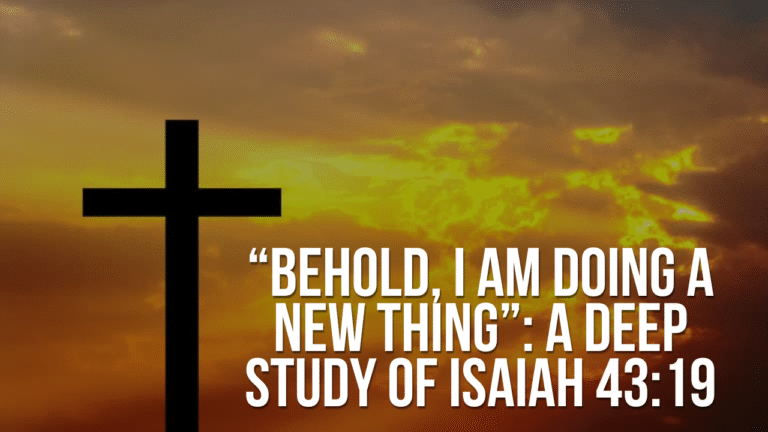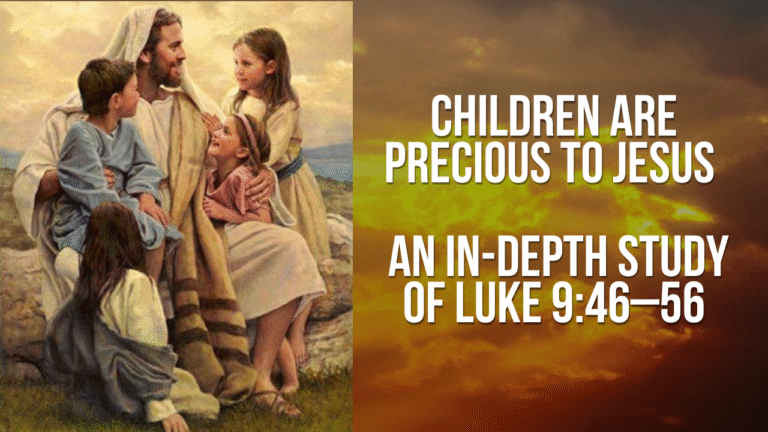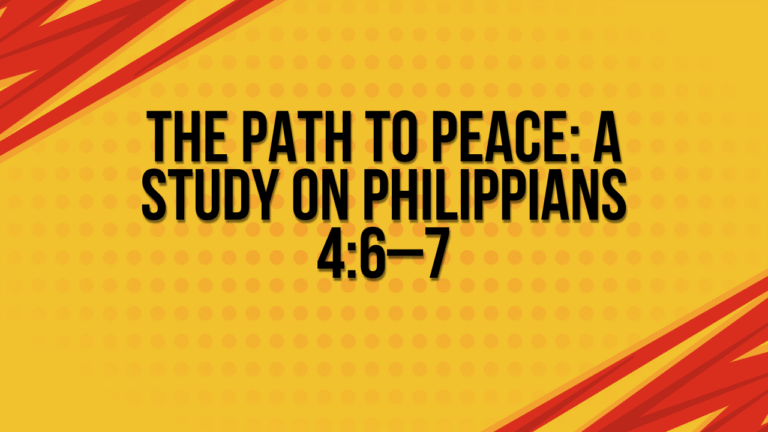Fear Him Who Can Destroy Both Soul and Body
Fear Him Who Can Destroy Both Soul and Body”: Finding Comfort in the Fear of God (Matthew 10:28)
The Jarring Command
The words of Jesus are often a source of immense comfort, hope, and challenge. But sometimes, they stop us in our tracks. In the middle of his instructions to his disciples before sending them out on their first mission, Jesus delivers a command that feels stark and unsettling to modern ears: “Do not be afraid of those who kill the body but cannot kill the soul. Rather, fear him who can destroy both soul and body in hell” (Matthew 10:28, NIV).
At first glance, this seems to contradict the pervasive biblical theme of God’s love and the command to “fear not,” which appears hundreds of times in scripture. Is Jesus advocating for a cowering, terror-filled relationship with a vengeful God? Is this a divine threat designed to compel obedience through fear? For many, this verse creates a tension they don’t know how to resolve, painting a picture of God as a cosmic threat.
This interpretation, however, misses the profound depth and comforting wisdom embedded in this command. Jesus is not contradicting God’s nature; he is revealing a fundamental key to unlocking a life of true courage and freedom. He is performing a spiritual intervention, redirecting our innate capacity for fear away from the temporary threats of this world and toward the ultimate reality of God’s sovereign power. This post will explore the rich Hebrew concept of “fear,” the context of Jesus’s message, and how a proper understanding of this “fear” is not the opposite of love, but its essential foundation.
The Hebrew Concept of “Yirah”: Awe, Reverence, and Astonishment
To understand what Jesus is commanding, we must first deconstruct our modern English understanding of the word “fear.” For us, fear is almost exclusively a negative emotion: the feeling of imminent danger, anxiety, or terror. It is something to be avoided and overcome.
The Hebrew word often translated as “fear” in the Old Testament is yirah (יִרְאָה). While it can include terror in the face of danger, its meaning is far broader and more positive. Yirah encompasses:
-
Awe: The overwhelming feeling of wonder in the presence of something sublime, powerful, and majestic. It is the feeling of a tiny person gazing at the starry expanse of the universe.
-
Reverence: A deep, respectful honor and admiration for someone of immense worth, authority, or holiness.
-
Wonder-filled Obedience: The natural response of aligning one’s life with the instructions of a being who is infinitely wise and good.
This kind of “fear” is not a paralyzing terror that drives us away from God. It is a magnetic awe that draws us toward Him, even as it causes us to tremble at His holiness and power. It is the feeling described at the end of the book of Job, where Job, after demanding answers from God, is confronted with the divine whirlwind and says, “My ears had heard of you but now my eyes have seen you. Therefore I despise myself and repent in dust and ashes” (Job 42:5-6). This is not terror of punishment; it is awe-struck humility in the face of overwhelming glory.
Proverbs 9:10 explicitly links this concept to wisdom: “The fear of the LORD is the beginning of wisdom, and knowledge of the Holy One is understanding.” The “fear of the Lord” is the starting point for a rightly ordered life and a rightly ordered world. It is the fundamental recognition of who God is and, consequently, who we are in relation to Him.
The Context of Matthew 10: A Mission Fraught with Danger
Jesus’s command is not given in a vacuum. In Matthew 10, he is sending his twelve disciples out on their first independent mission to “the lost sheep of Israel.” He is brutally honest about the challenges they will face. He warns them of persecution, floggings, betrayal by family members, and being brought before governors and kings. They will be like “sheep among wolves” (v.16).
In this context, human fear is a natural and expected response. The disciples would be right to be afraid of the religious authorities who could excommunicate them, the Roman authorities who could imprison or execute them, and the social ostracism that would come from their own communities.
It is into this anticipated panic that Jesus speaks his corrective words. He is not dismissing their very real concerns. Instead, he is offering them a profound perspective shift. He is asking them to perform a spiritual calculus:
-
What is the worst thing a human being can do to you? They can kill your body. This is a real and terrible evil, but it is a limited evil. Their power stops at the grave.
-
Who holds ultimate, final authority over your entire existence? God alone holds your soul and body in His hands for all eternity.
Therefore, Jesus argues, it is utterly illogical to fear the limited power of man more than the ultimate power of God. To do so is to have a catastrophic failure of perspective, prioritizing a temporary, physical threat over an eternal, spiritual reality. The command to “fear God” is, in this light, a command to get your priorities straight. It is a call to see the world as it truly is.
The Comfort in the Command: How the Fear of God Liberates from Human Fear
This is where the command becomes not a threat, but a profound comfort. Jesus is offering the disciples the key to unlocking a courage that the world cannot understand. If your greatest fear is the judgment of other people, you will be a slave to their opinions. You will shape your words, your actions, and your life to avoid their disapproval.
But if you have a right, awe-filled reverence for God—if you are ultimately concerned with what He thinks—then the opinions of other people suddenly shrink to their proper size. They become secondary. Their power to intimidate you is broken. The fear of God doesn’t add a bigger fear to your life; it displaces and cancels out all lesser fears.
This is the consistent witness of scripture:
-
“The LORD is my light and my salvation—whom shall I fear? The LORD is the stronghold of my life—of whom shall I be afraid?” (Psalm 27:1)
-
“So we say with confidence, ‘The Lord is my helper; I will not be afraid. What can mere mortals do to me?'” (Hebrews 13:6)
The “fear of the Lord” is the antidote to the “fear of man.” It is the liberation from the tyranny of public opinion, social rejection, and even physical threat. By redirecting our fear to its proper object—the God who is both perfectly powerful and perfectly loving—we are freed from the paralyzing power of every other object of fear.
Balancing Fear and Love: The Nature of a Covenant Relationship
This brings us to the crucial balance. How do we reconcile the “fear of the Lord” with the perfect love that “drives out fear” mentioned in 1 John 4:18? This apparent contradiction is resolved by understanding the different types of fear being discussed.
1 John 4:18 is specifically about the “fear of punishment”—the terror of a criminal before a judge. John argues that if we understand and trust in God’s love demonstrated through Christ’s sacrifice, we can be assured that we are reconciled to God. We do not need to live in dread of final punishment. Our status as beloved children is secure.
The “fear of the Lord,” however, is not the fear of punishment for the believer. It is the awe, reverence, and loving respect of a child for a magnificent and holy Father. It is the fear that recognizes the father’s authority and power to discipline, but it is rooted in a secure relationship of love and trust. It is the same healthy respect that prevents a child from running into a busy street—not because they think their parent will maliciously punish them, but because they trust their parent’s loving authority and rules designed for their protection.
A right relationship with God holds both truths in tension: the confident assurance of His love and the awe-struck reverence for His holiness and power. One without the other leads to a distorted view of God: either a cozy, sentimental “buddy” who has no authority, or a distant, terrifying tyrant who has no love.
Conclusion: The Beginning of Wisdom and the End of Anxiety
Jesus’s command in Matthew 10:28 is not a regression to a primitive religion of terror. It is the words of a master physician diagnosing the root cause of human anxiety and prescribing the only lasting cure. He identifies our misplaced fears—our terror of financial ruin, social rejection, physical illness, and human violence—and points us to the only reality big enough to put them in their place.
The command to “fear him who can destroy both soul and body in hell” is, paradoxically, an invitation to fear nothing and no one else. It is an invitation to transfer our ultimate concern from the temporary, fragile things of this world to the eternal, unshakable God. This holy fear is not a destination but a starting point. It is the “beginning of wisdom,” the first step on a journey that leads to a love so secure and a freedom so profound that even the threat of death itself loses its final sting. The one who truly fears God need fear nothing else.

